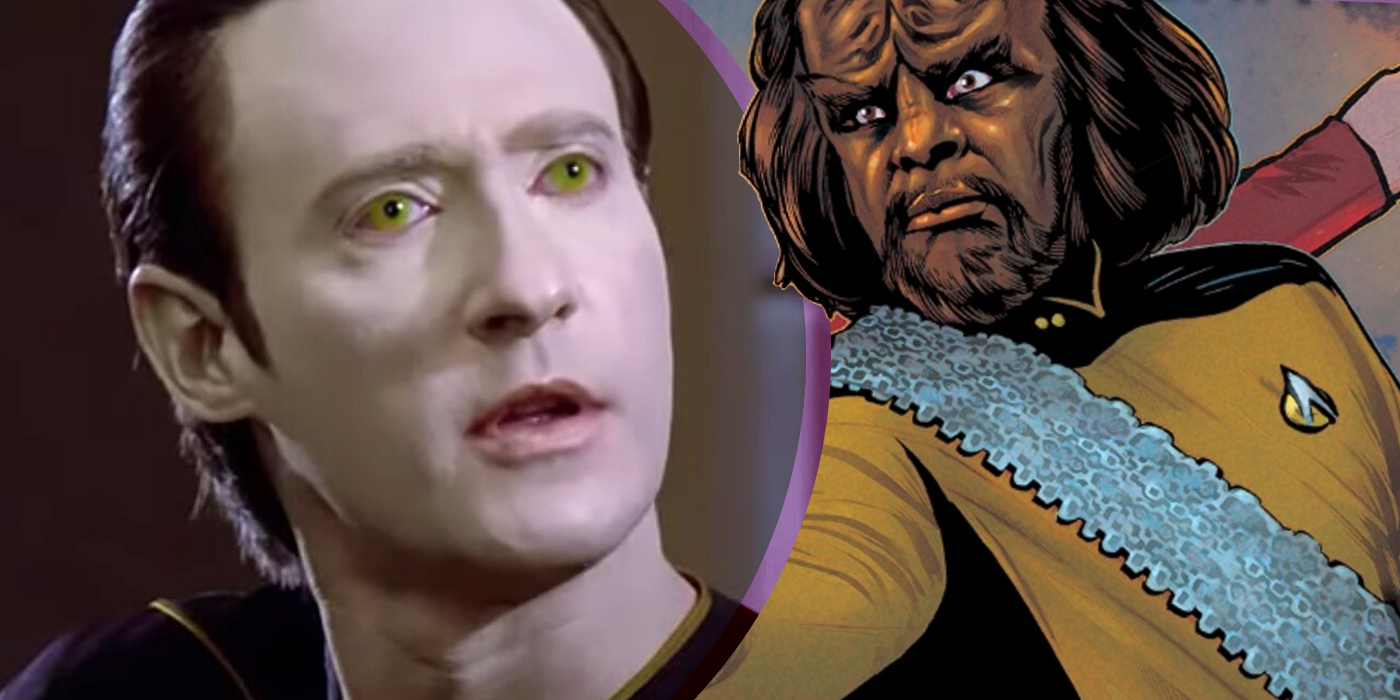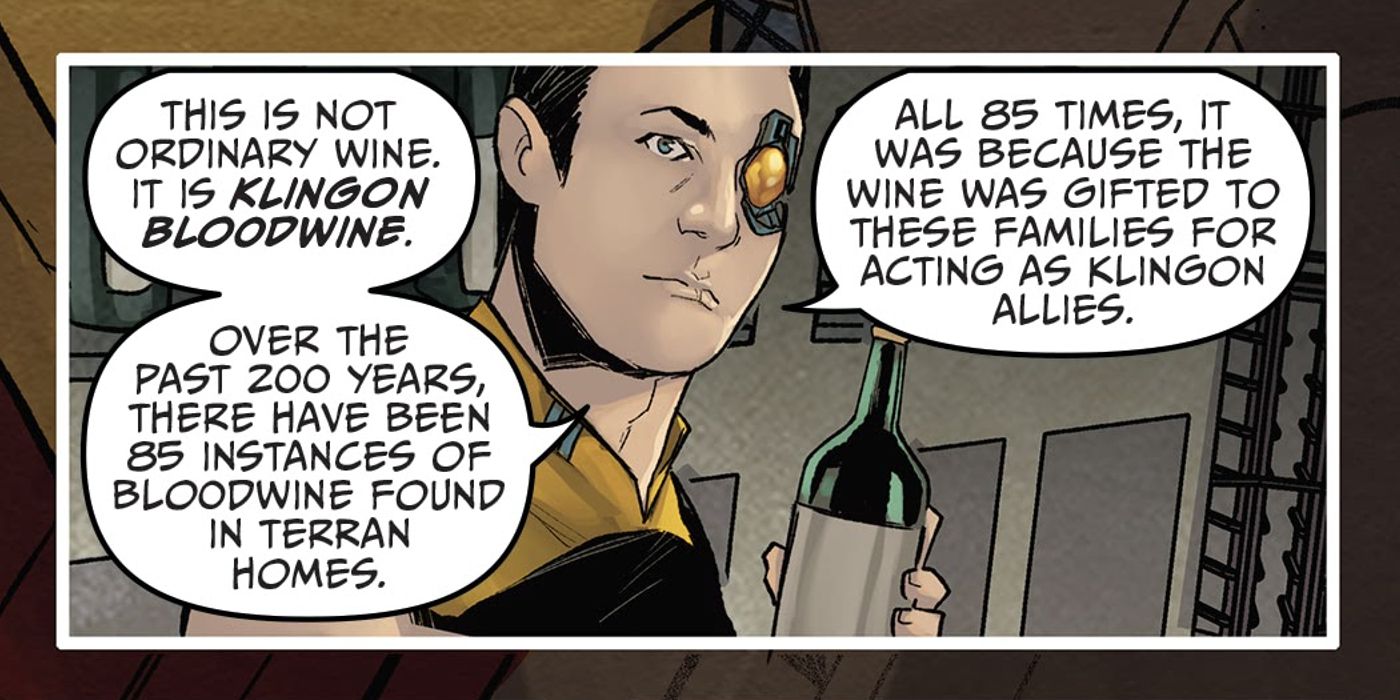Warning: spoilers ahead for Star Trek: The Mirror War: Data #1!
The evil Data from Star Trek's upside-down mirror universe just helped Reginald Barclay restore his family's honor more directly than his good counterpart did for Worf in The Next Generation.
Following the evil Barclay abandoning his crew to spy on the U.S.S. Enterprise D alone, Data struggles to perform his duties optimally as a result and decides he can remedy his odd predicament by addressing his now strained relationship with Barclay. The android accomplishes this by shadowing him and sneaks onto the human's holodeck program, set on Barclay's home planet of Sarolis. There, the synthetic lifeform learns that a woman named Merliak framed Barclay's family for fraternizing with the Klingons and agrees to help Barclay uncover the truth so both of them can focus on their duties. Star Trek: The Mirror War: Data #1 comes from Celeste Bronfman, artist Roberta Ingranata, colorist Valentina Pinto and letterer Neil Uyetake.
Beaming directly onto the planet's surface with Data proves to be quite effective because the android immediately finds Klingon bloodwine that, he reveals, is a traditional gift for families in service of the Klingons, proving without a doubt that Merliak framed Barclay's ancestors for doing what her own family did. Worf faces the same plight in The Next Generation when Duras accuses Worf's father Mogue of betraying the Empire by helping the Romulans successfully bring about the infamous Khitomer Massacre. Of course, Duras' father Ja'rod is the true traitor. Interestingly, it is Data, with the help of Commander La Forge, who uncovers the truth, but not by going on an away mission like his evil counterpart. He delves into data entries instead, finding discrepancies between two entry logs and pinpointing the location of the massacre's sole survivor to help support Worf in person. Despite this, Jean-Luc Picard goes to find this survivor, not Data.
Even though Worf ends up with both written and verbal testimony clearing his father of all charges, the Klingon chooses not to disclose the truth to the public after speaking with the Klingon High Council in private to avoid a civil war and the likely death of his brother Kurn. Conversely - because the mirror-universe Data and Barclay essentially charge into enemy territory without first performing any research or clearing their intentions with a higher governmental body - there are no such caveats. They merely arrive, find the wine, confront Merliak, and bind them. While Data does help Worf in a similar situation, his observation of Starfleet protocol actually make him far less effective at revealing the truth and helping his friend.
The Data and Barclay of The Next Generation's normal universe would have never gone on their own escapade without first gaining clearance from Captain Jean-Luc Picard, and if the evil Worf had ever faced a similar predicament as his good counterpart, the mirror-universe Data would have taken more drastic actions, clearing Worf's father immediately with the help of his superior positronic brain, but at the expense of Klington stability (or at least he would if the two weren't enemies in this alternate universe.)
It's a paradox that would confound Data himself - in the world where he's a more decent individual and follows rules which have been proved effective in improving lives across the galaxy, he's actually rendered less effective than his "evil" self. For a being obsessed with embracing his own humanity, the fact that a more reckless Data also more quickly and effectively brought about justice would be confounding. In this sense, Star Trek: The Mirror War: Data #1 observes the moral questioning that made The Next Generation so beloved, even if it does suggest that Data could have helped Worf far more than fans actually witnessed.


